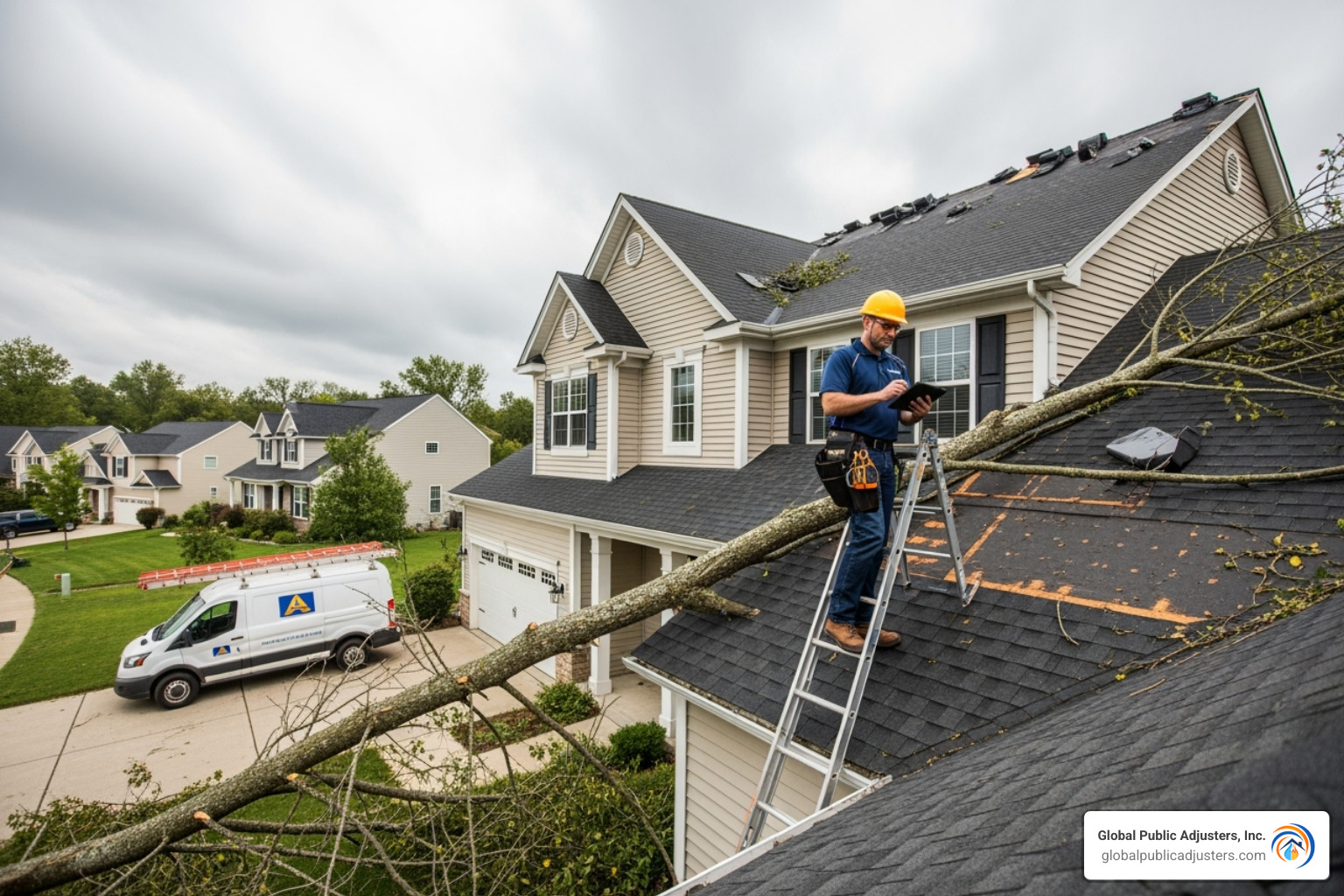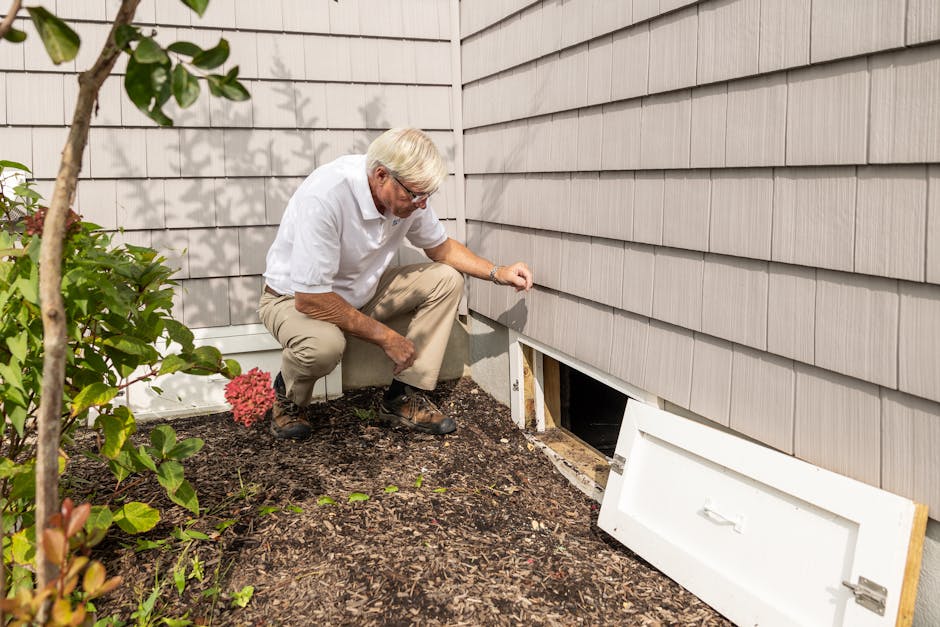Independent insurance adjuster near me: Smart Choice 2025
Why Finding the Right Independent Insurance Adjuster Matters
When disaster strikes your home or business, finding anindependent insurance adjuster near meis crucial for a fair settlement. But what most people don’t realize is that not all adjusters work for you.
Quick Answer for “Independent Insurance Adjuster Near Me”:
- Staff Adjusters– Work directly for your insurance company
- Independent/Contracted Adjusters– Work for insurance companies on a contract basis
- Public Adjusters– Work exclusively for YOU, the policyholder
- Best Option for Homeowners– Public adjusters who represent your interests, not the insurer’s
A telling statistic from the insurance industry reveals a fundamental imbalance: approximately 99% of claims adjusters practicing in Quebec work for insurance companies. When you file a claim, you’re often dealing with professionals whose job is tominimizewhat the insurance company pays. As one industry insider puts it: “All carriers, good or bad, look to do three things: deny the claim, underpay the claim, or delay the claim.”
The reality is that most “independent” adjusters are not truly independent from your insurer’s interests. They are contracted by insurance companies to handle claims, especially during catastrophic events. This guide will help you understand the different types of adjusters and how to find a professional who truly works for you.

Explore more aboutindependent insurance adjuster near me:
Understanding the Key Players in Your Insurance Claim
When your home suffers damage, you’ll meet an insurance claims adjuster. This professional investigates what happened, assesses the damage, reviews your policy, and determines your settlement amount. But here’s the crucial part most people miss:the vast majority of adjusters work for insurance companies, not for you. Their job is to protect the insurer’s financial interests.

The Staff Adjuster vs. the Contracted Adjuster
Let’s clarify the types of adjusters you might encounter when searching for anindependent insurance adjuster near me.
Staff adjustersare full-time employees of your insurance company. Their loyalty is clear.
Contracted adjusters, often misleadingly called “independent adjusters,” are hired and paid by insurance companies. Insurers rely on them duringcatastrophic eventslike hurricanes or inremote areas. Whether you’re dealing with a staff or contracted adjuster, remember:both represent the insurance company’s interests, not yours.
The Public Adjuster: Your Personal Advocate
This is where the game changes.A public adjuster works exclusively for you—the policyholder. We are the only type of adjuster whose success depends on maximizing your settlement.
When you hire a public adjuster, you get an expert in your corner who understands insurance policies, knows how to document damages, and can negotiate with insurance companies as an equal. We level the playing field.
Most public adjusters work on acontingency fee basis, meaning we only get paid when you do. Our fee is a percentage of your settlement, which perfectly aligns our interests with yours.
The difference can be substantial. We’ve seen cases where initial offers are 30-50% lower than what policyholders ultimately receive after hiring a public adjuster. For complex damages likefire damageorwater damage, having an advocate is essential.
To learn more about how we can help, visit our page onWhat Can a Public Adjuster Do For Me?. While most adjusters work for insurers,public adjusters work for you—and that makes all the difference.
How to Find the Right Insurance Adjuster Near Me (And Who You Should Really Be Looking For)

How to search for an insurance adjuster near me
Finding the right professional starts with knowing where to look:
- Online searches:Be specific. Search for terms like “public adjuster Orlando” or “public adjuster Pensacola” to locate professionals who represent policyholders in your area.
- State licensing boards:These are goldmines of information. You can verify an adjuster’s license and check for disciplinary actions. In Florida, for example, you can use the Department of Financial Services.
- Word-of-mouth referrals:Ask friends, family, or trusted professionals such as attorneys and contractors.
For immediate assistance with your claim,Contact Global Public Adjusters, Inc.directly. We offer free consultations.
Key specializations to look for in an insurance adjuster near me
Not all damage is the same, and neither are adjusters. Find the right fit for your situation:
- Property claims:This covers damage to your home or business from fire, water, wind, or vandalism.
- Complex commercial claims:These require adjusters who understand business interruption and equipment valuation.
- Specialty damage types:Fire damage involves more than just burns; it includes smoke and water damage from firefighting. Learn about our expertise infire damage claims. Water damage requires spotting hidden moisture. We have extensive experience withwater damage claims in Orlando.
- Storm and hurricane damage:Common in Florida, these claims involve wind, hail, and water intrusion. Our experience withhurricane damage claims in Orlandois critical for these complex situations.
Why a Public Adjuster is Often the Better Choice for Policyholders
Consider hiring a public adjuster for:
- Complex damages:When you have structural issues or multiple damage types.
- Large loss claims:When significant money is at stake, our fee is often dwarfed by the increased settlement we secure.
- Denied or underpaid claims:We can re-evaluate the damage and present a compelling case for a fair payout.
- Time and expertise constraints:You’re overwhelmed; we do this every day. We level the playing field with our knowledge of insurance, construction, and estimating software.
Insurance companies have teams working to minimize their payout. Shouldn’t you have an expert working to maximize yours?
Navigating the Claims Process Like a Pro
When disaster strikes, knowing how to handle the claims process is key. The secret to success?Documentation is everything.

Key Steps to Take Before Filing a Claim
Before you call your insurance company, take these crucial steps:
- Document comprehensively:Take hundreds of photos and videos of all damage. You can never have too much evidence.
- Review your policy:Understand your deductible, coverage limits, and special clauses.
- Prevent further damage:Tarp leaking roofs or board up broken windows. Keep all receipts for these emergency repairs, as they should be reimbursable. Do not make permanent repairs until an adjuster has seen the damage.
- Create an inventory:List all damaged or destroyed items with their age and replacement cost.
- Check weather data:For storm claims, use resources likeHistorical Weather Data Searchto confirm conditions.
- Notify your mortgage lender:They have a financial interest and often need to be involved in the settlement.
Best Practices for Interacting with the Insurer’s Adjuster
The insurance company’s adjuster works for them, not you. Be smart about your interactions.
- Document all communication:Note the date, time, who you spoke with, and what was discussed.
- File your claim promptly:Delays can create complications.
- Bring a witness:Have a trusted person or your public adjuster present during meetings.
- Watch your language:Stick to the facts and avoid admitting fault.
- Question any settlement offer:Ask for a detailed breakdown of their calculations.
- Request a cash advance:If your policy covers additional living expenses, ask for an advance for immediate costs.
- Get everything in writing:Verbal agreements are not binding.
- Don’t be rushed:Take the time you need to review all documents and offers.
- Always tell the truth:Honesty is crucial. Lying can lead to claim denial or even legal trouble.
The Role of Technology in Modern Claims Handling
Technology has made the claims process faster and more transparent.
- Dronesprovide safe and thorough roof inspections for storm damage.
- Virtual assessmentsvia video calls can speed up smaller claims.
- Estimating softwarelike Xactimate standardizes damage estimates, leveling the playing field.
- Digital portalslet you track your claim and communicate online.
While technology is efficient, it can’t replace the expertise and advocacy that a skilled public adjuster brings to a complex claim.
The Business and Ethics of Claims Adjusting
Behind every insurance claim is a professional framework. However, for staff and contracted adjusters, this framework primarily serves the insurance company’s interests.
Adjuster Qualifications, Licensing, and Ethics
All claims adjusters must be licensed by their state or province, demonstrating knowledge of insurance law and ethics. Many jurisdictions, like Quebec, also require continuing education (e.g., 20 hours every two years) to stay current. Every adjuster follows a code of ethics requiring integrity and objectivity. The crucial difference is who they are ethically bound to serve. Staff and contracted adjusters have a duty to the insurer.A public adjuster’s primary ethical duty is to you, the policyholder.Your rights as a policyholder include clear communication, prompt handling of your claim, and the ability to dispute settlement offers.
How Different Adjusters Get Paid
The way an adjuster gets paid reveals their allegiance.
| Adjuster Type | Who Pays Them? | How They Are Paid? | Whose Interests Do They Represent? |
|---|---|---|---|
| Staff Adjuster | The Insurance Company | Salary + Benefits | The Insurance Company |
| Contracted Adjuster | The Insurance Company | Hourly Rate, Flat Fee, or Percentage (from insurer) | The Insurance Company |
| Public Adjuster | The Policyholder (from settlement) | Contingency Fee (percentage of settlement) or Hourly Rate + Expenses | The Policyholder |
Staff and contracted adjusters are paid by insurance companies, aligning their goals with minimizing payouts. Public adjusters typically work on a contingency fee—a percentage of your settlement. This aligns our success with yours: the more you receive, the more we earn.
Consequences of Filing Multiple Claims
While you have insurance for a reason, filing too many claims can have negative consequences.
- Increased premiums:Frequent claims signal higher risk to insurers.
- Policy non-renewal:Insurers may choose not to renew your policy.
- High-risk classification:This can make it difficult and expensive to find new coverage.
The rule of thumb is to avoid filing small claims where the repair cost is barely over your deductible. However, never let fear of rate increases stop you from filing a legitimate claim for a significant loss. That’s what insurance is for.
Frequently Asked Questions about Insurance Adjusters
We know that dealing with insurance claims can be overwhelming. Here are answers to the questions we hear most often.
What should I do if I disagree with the settlement offer from the insurance company’s adjuster?
Disagreeing with an initial offer is common. First,ask for a detailed breakdownof their valuation. Gather your own independent estimates from contractors. If you still can’t reach an agreement, hiring aPublic Adjusteris your best next step. We can renegotiate on your behalf using our expertise. Your policy may also outline mediation or legal options, but most disputes can be resolved through proper advocacy. The first offer is rarely the best one.
Can I cancel a contract with a public adjuster?
Yes, you can.Consumer protection laws typically give you a right to cancel, often within a “cooling-off period” of around ten days after signing. You may be responsible for fees for work already performed. A reputable public adjuster will clearly explain the cancellation terms in your contract. We believe in building trust through transparency.
What’s the most important thing to remember when dealing with any insurance adjuster?
Here’s the key insight:always remember who signs their paycheck.
Staff adjusters and contracted adjusters (even if they’re called “independent”) work for the insurance company. Their duty is to their employer.
A public adjuster works exclusively for you, the policyholder. Our success depends entirely on maximizing your settlement, not minimizing the insurer’s payout. Understanding this fundamental difference is crucial to protecting your financial interests.
Conclusion
When you’re searching for anindependent insurance adjuster near me, you’re really looking for an advocate. Now you understand the crucial difference: most adjusters work for the insurance company, butpublic adjusters work exclusively for you, the policyholder.
For complex claims involvingfire damageorhurricane damage, this advocacy is essential. Insurance companies have teams of professionals working to deny, delay, or underpay claims. After 50 years of representing Florida homeowners and business owners, we’ve seen this pattern countless times. We know their tactics and how to counter them.
Don’t face your insurance company alone.A public adjuster levels the playing field, handling the paperwork and negotiations so you can focus on rebuilding.
At Global Public Adjusters, Inc., we’ve helped thousands of policyholders in Orlando, Pensacola, and throughout Florida receive fair settlements. Our experience withFire DamageandHurricane Damagecases means we understand what it takes to maximize your settlement.
Your insurance company has professionals working for them. You deserve the same. Let our five decades of expertise work for you.
Ready to get the settlement you deserve?Explore Our Servicesand find how we can make all the difference in your claim outcome.



